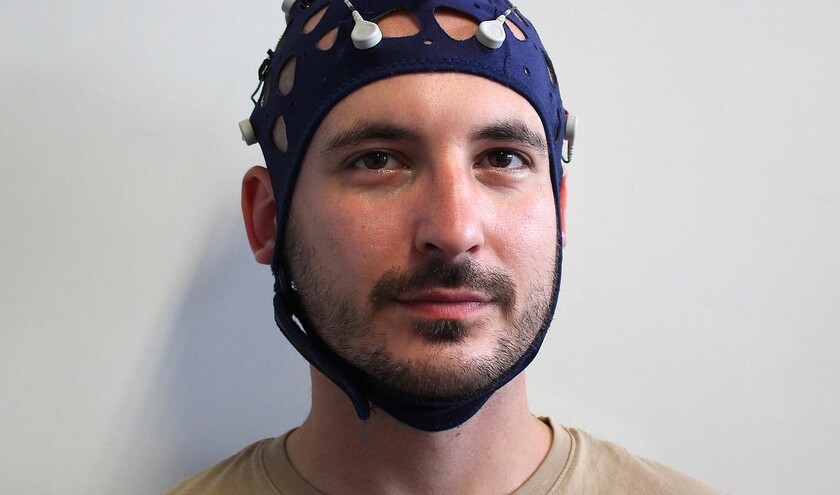Led by Professor John Terry and Professor Rohit Shankar at the University of Plymouth, the project will run feasibility studies in Cornwall – one of the UK's most underserved regions for specialist neurology care.
Working with NHS Cornwall & Isles of Scilly ICB and Cornwall Partnership NHS Foundation Trust (CFT), the team is creating an affordable, easy-to-use brain monitoring system that could be made available in GP surgeries or at home.
Currently, many Cornish patients face long waits and lengthy journeys for hospital-based EEG (electroencephalogram) tests, delaying diagnosis and treatment. In line with the 10-Year Health Plan, the new device aims to bring testing closer to where people live, supporting earlier detection of conditions like epilepsy, functional neurological disorder (FND) and even stroke.
A proof-of-concept prototype headset has already been developed and tested and the team aims to scale this into a validated, community-ready version, alongside the development of digital biomarkers that enable clinically relevant information to be extracted from the recordings.
The ultimate aim is to reduce delays, cut NHS costs, and lower the carbon footprint of diagnostic care.
The £2.45m project is being supported by a grant of around £1.9m from the UKRI Engineering and Physical Sciences Research Council (EPSRC).
Professor John Terry, professor of digital healthcare innovation, said: ‘This project is about taking the EEG out of the hospital and into the community.
‘By combining digital biomarkers with a point-of-care headset we can give people easier access to faster answers and better care no matter where they live. In remote areas of the South West where access to healthcare can often be complex, costly and time-consuming, it could make a real difference to people's health and outcomes.'
Professor Rohit Shankar, professor of neuropsychiatry, added: ‘Reports from the UK Neurological Alliance have routinely highlighted the stark inequalities in access to specialists, with rural and coastal areas like Cornwall often having far fewer neurologists, neuropsychiatrists and psychiatrists than urban centres. By exploring solutions that bring testing closer to home, this project represents a step towards levelling up neurological care in line with the NHS long-term plan.
‘It offers renewed hope of timely support and fairer outcomes, and brings the hope of earlier diagnosis and more accessible care to communities that have long faced barriers.'
The current project builds on previous EPSRC research and includes collaborations with Neuronostics Ltd - a spinout company co-founded by Professor Terry - Epilepsy Action, the Epilepsy Research Institute UK, FND North, Lancashire Teaching Hospitals NHS Foundation Trust, the University of Birmingham, and the University of Lancashire.
The work is one of six new research projects funded through the EPSRC, with each project receiving up to £2m to develop diagnostic tools that are simple, affordable and designed for everyday settings like GP surgeries, pharmacies, or even people's homes.
Each project aims to tackle a range of conditions, including asthma, dementia, chemotherapy-related nerve damage and musculoskeletal disorders, with the shared goal of supporting earlier diagnosis, easing pressure on hospitals, and improving outcomes for patients.



